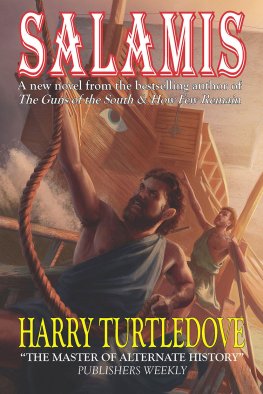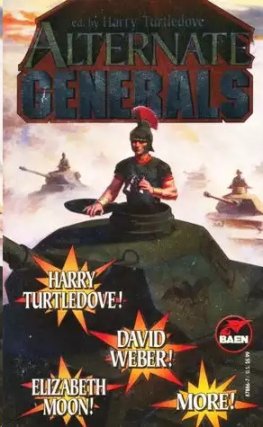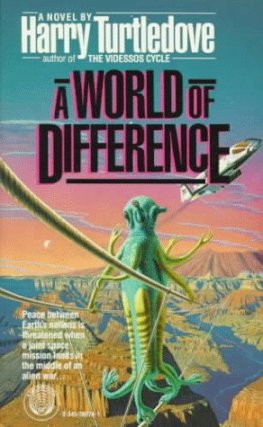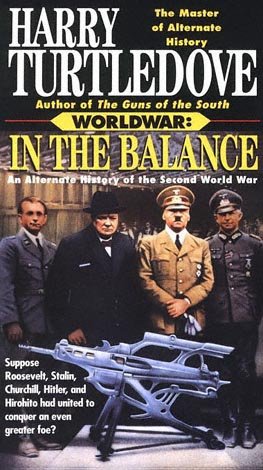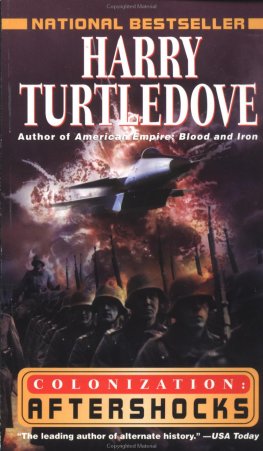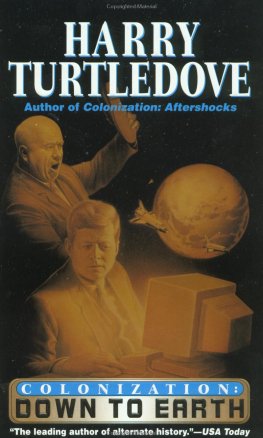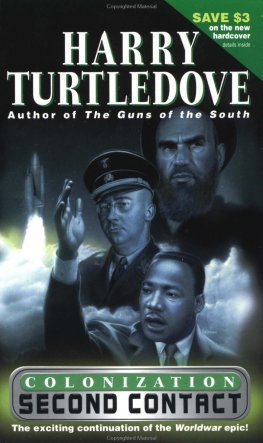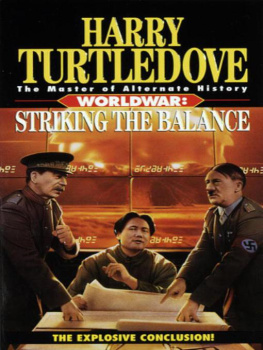BOOKS BY HARRY TURTLEDOVE
The Guns of the South
THE WORLDWAR SAGA
Worldwar: In the Balance
Worldwar: Tilting the Balance
Worldwar:Upsetting the Balance
Worldwar: Striking the Balance
COLONIZATION
Colonization: Second Contact
Colonization: Down to Earth
Colonization: Aftershocks
THE VIDESSOS CYCLE
The Misplaced Legion
An Emperor for the Legion
The Legion of Videssos
Swords of the Legion
THE TALE OF KRISPOS
Krispos Rising
Krispos of Videssos
Krispos the Emperor
THE TIME OF TROUBLES SERIES
The Stolen Throne
Hammer and Anvil
The Thousand Cities Videssos Besieged
Noninterference
Kaleidoscope
A World of Difference
Earthgrip
Departures
How Few Remain
THE GREAT WAR
The Great War: American Front
The Great War: Walk in Hell
The Great War: Breakthroughs
American Empire: Blood and Iron
Harry Turtledove was born in Los Angeles in 1949. He has taught ancient and medieval history at UCLA, Cal State Fullerton, and Cal State L.A., and has published a translation of a ninth-century Byzantine chronicle, as well as several scholarly articles. He is also an award-winning full-time writer of science fiction and fantasy. His alternate history works have included several short stories and novels, including The Guns of the South, How Few Remain (winner of the Sidewise Award for Best Novel), the Great War epics: American Front and Walk in Hell, and the Colonization books: Second Contact and Down to Earth. His new novel is American Empire: The Center Cannot Hold. He is married to fellow novelist Laura Frankos. They have three daughters: Alison, Rachel, and Rebecca.
To learn more about other great ebook titles from Ballantine, please visit
http://www.randomhouse.com/BB/ebooks.htm.
To enjoy other great science fiction and fantasy titles visit
www.delreydigital.com.


As the jet aircraft descended toward the airport outside the still slightly radioactive ruins of Nuremberg, Pshing asked Atvar, Exalted Fleetlord, is this visit really necessary?
I believe it, the commander of the Races conquest fleet told his adjutant. My briefings state that a Tosevite wise in the political affairs of his kind recommended that a conqueror visit the region he conquered as soon as he could, to make those he had defeated aware of their new masters.
Technically, the Greater German Reich remains independent, Pshing pointed out.
So it doestechnically. But that will remain a technicality, I assure you. Atvar used an emphatic cough to show how strongly he felt about that. The Deutsche did us far too much harm in this exchange of explosive-metal weapons to let their madness ever break free again.
A pity we had to concede them even so limited an independence, Pshing said.
And that is also a truth, Atvar agreed with a sigh. He swiveled one eye turret toward the window to get another look at the glassy crater that filled the center of the former capital of the Greater German Reich. Beyond it lay a slagged wilderness of what remained of homes and factories and public buildings. Conventional bombs had devastated the airport, too, but it was back in service.
Pshing said, If only we had some means of detecting their missile-carrying boats that can stay submerged indefinitely. Without those, we could have forced unconditional surrender out of them.
Truth, Atvar repeated. With them, though, they could have inflicted a good deal more damage to our colonies here on Tosev 3. They will be surrendering the submarines they have left. We shall not allow them to build more. We shall not allow them to have anything to do with atomic power or explosive-metal weapons henceforward.
That is excellent. That is as it should be, Pshing said. If only we could arrange to confiscate the submersible boats of the United States and the Union of Soviet Socialist Republics as well, we would truly be on our way toward a definitive conquest of this miserable planet.
I merely thank the spirits of Emperors pastAtvar cast both his eye turrets down to the floor of the aircraft that carried himthat neither of the other powerful not-empires chose to join the Deutsche against us. Together, they could have hurt us much worse than the Reich alone did.
And now we also have the Nipponese to worry about, Pshing added. Who knows what they will do, now that they have learned the art of constructing explosive-metal weapons? They already have submarines, and they already have missiles.
We never did pay enough attention to islands and their inhabitants, Atvar said fretfully. Small chunks of land surrounded by sea were never important back on Home, so we have always assumed the same would hold true here. Unfortunately, it does not seem to be so.
Before Pshing could answer, the aircrafts landing gear touched down on the runway outside Nuremberg. The Races engineering, slowly refined through a hundred thousand years of planetary unity, was very fine, but not fine enough to keep Atvar from feeling some bumps as the aircraft slowed to a stop.
My apologies, Exalted Fleetlord. The pilots voice came back to him on the intercom. I was given to understand repairs to the landing surface were better than is in fact the case.
Peering out the window, Atvar saw Deutsch males in the cloth wrappings that singled out their military drawn up in neat ranks to greet and honor him. They carried rifles. His security males had flabbled about that, but the Reich remained nominally independent. If some fanatic sought to assassinate him, his second-in-command in Cairo would do... well enough. What was the name of the sly Big Ugly who suggested this course? he asked Pshing.
Machiavelli. His adjutant pronounced the alien name with care, one syllable at a time. He lived and wrote about nine hundred years ago. Nine hundred of our years, I should sayhalf as many of Tosev 3s.
So he came after our probe, then? Atvar said, and Pshing made the affirmative gesture. The Race had studied Tosev 3 sixteen hundred years before: again, half that many in Tosevite terms. The fleetlord went on, Remember the sword-swinging savage mounted on an animal the probe showed us? He was the height of Tosevite military technology in those days.
A pity he did not remain the height of Tosevite military technology, as we were so confident he would, Pshing said. When we understand how the Big Uglies are able to change so rapidly, we will be able to prevent them from doing so in the future. That will help bind them to the Empire.
So it will... if we can do it, Atvar replied. If not, we will wreck them one not-empire at a time. Or, if necessary, we will destroy this whole world, even our colonies on it. That will cauterize it once for all.
One other possibility remained, a possibility that had never entered his mind when the conquest fleet first reached Tosev 3: the Big Uglies might conquer the Race. If they did, they would next mount an attack on Home. Atvar was as sure of it as of the fact that hed hatched from an egg. Wrecking the world would prevent it, as a surgeon sometimes had to prevent death by cutting out a tumor.
With the Reich prostrate, the Big Uglies would have a much harder time of it. Atvar knew that. But the worry never went away. The locals were quicker, more adaptable, than the Race. He knew that, too; close to fifty of his years of experience on Tosev 3 had burned the lesson into him again and again.
Next page
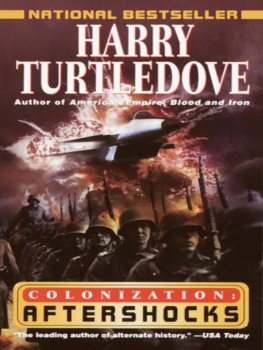
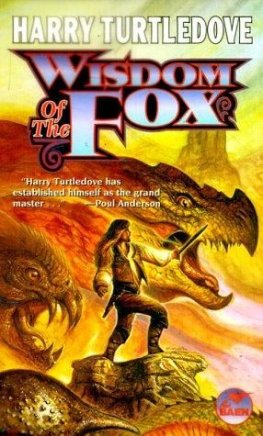
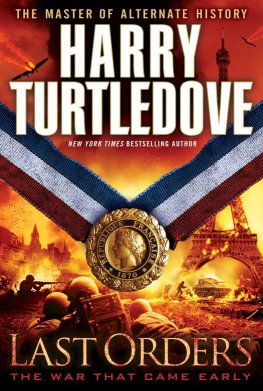
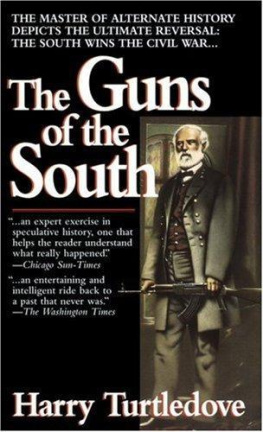
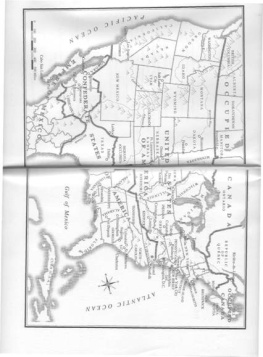
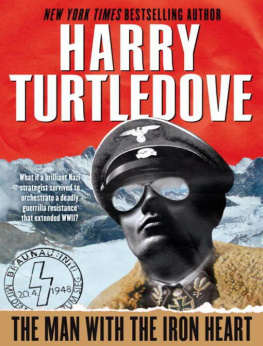
![Harry Turtledove - Worlds that werent : [novellas of alternate history]](/uploads/posts/book/79050/thumbs/harry-turtledove-worlds-that-weren-t-novellas.jpg)
